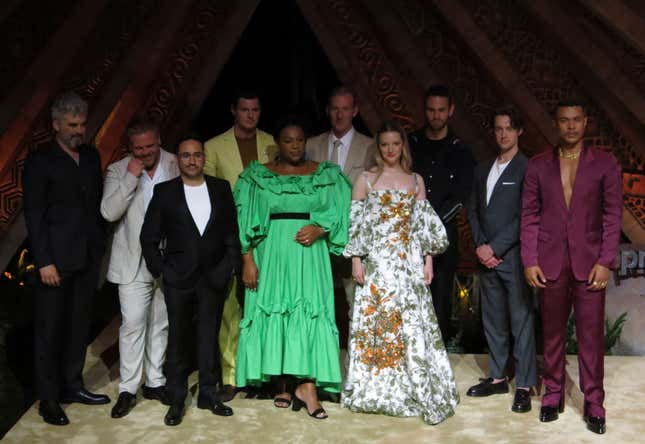
Amazon Prime’s new series, “The Lord of the Rings: The Rings of Power,” which is based on the work of J.R.R. Tolkien, confronts its legacy of racism through diverse casting choices. Though it is believed that the author isn’t racist, the way he describes some of his fictional creatures stand in contrast to that claim.
The wizard Sauron represents darkness and corruption. Orcs, who follow his every move, are humanoid creatures who are violent and full of hate. They are also described by Tolkien in a letter as “squat, broad, flat-nosed, sallow-skinned, with wide mouths and slant eyes: in fact degraded and repulsive versions of the least lovely Mongol-types.”
On the other hand, the elves—who embody goodness— are synonymous with whiteness and light skin. Peter Jackson’s “Lord of the Rings” films had main characters who were mostly all white; the protagonists in the film have clothing and culture based on that of northern Europe. The antagonists who represent evil are based on Middle Easterners or other non-European cultures.
“The Rings of Power,” which serves as an eight-episode prequel to “Lord of the Rings, intentionally goes in a different direction. The lead warrior, Galadriel (Morfydd Clark), is still very blonde as Tolkien described.
However, the other protagonists are diverse and include: the Harfoot/Hobbit leader Saddoc Burrows (Lenny Henry), the elf guard and warrior Arondir (Ismael Cruz Córdova), the human healer Bronwyn (Nanzanin Boniadi) and the dwarf princess Disa (Sophia Nomvete).
There is still more representation that needs to happen in entertainment. However, by “The Rings of Power” including people of color, it works against Tolkien’s narration of evil being dark skin. It also allows the franchise’s diverse fanbase to finally be seen.

